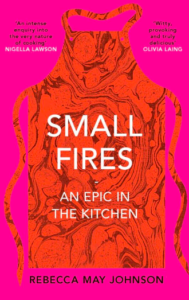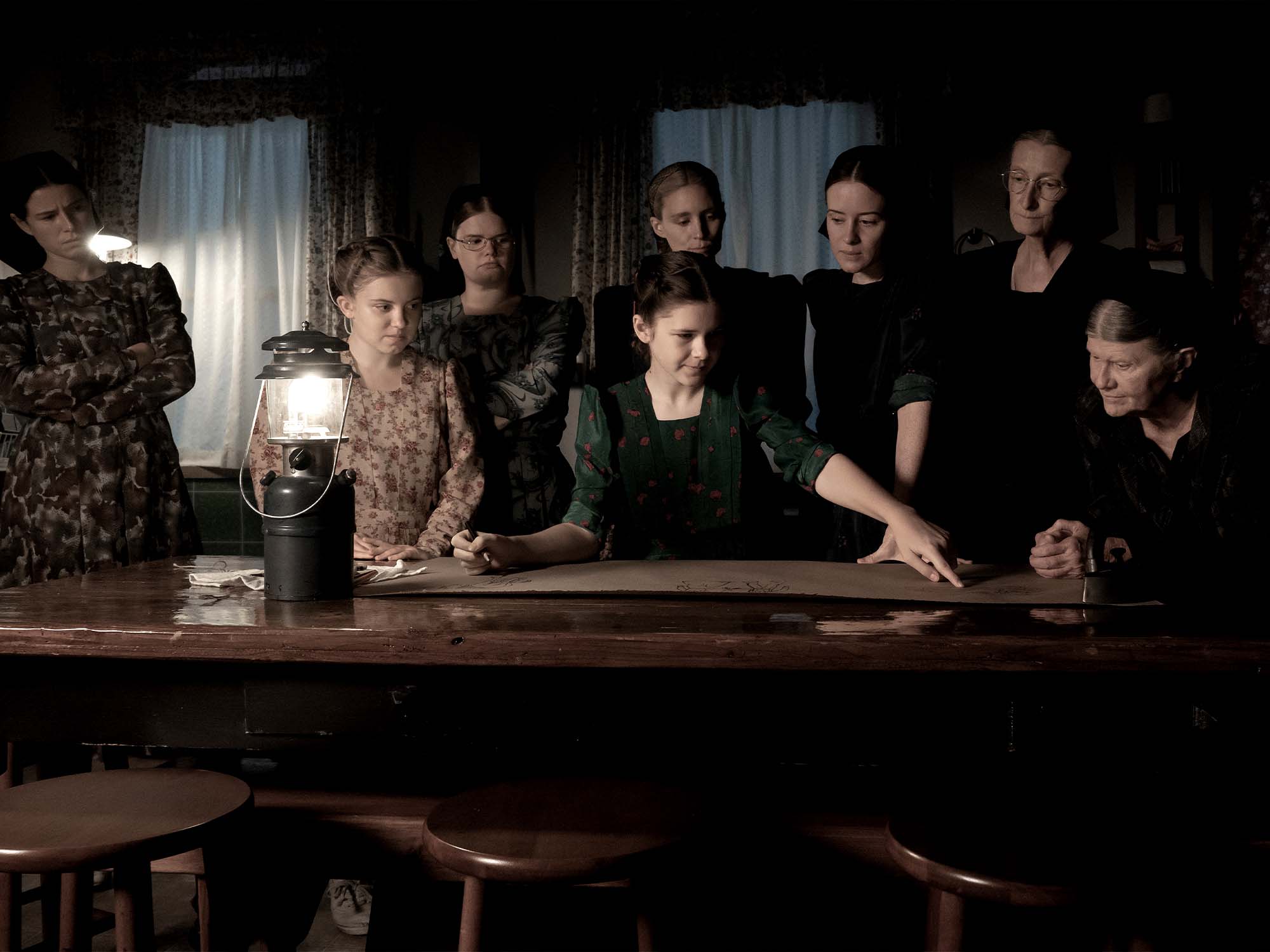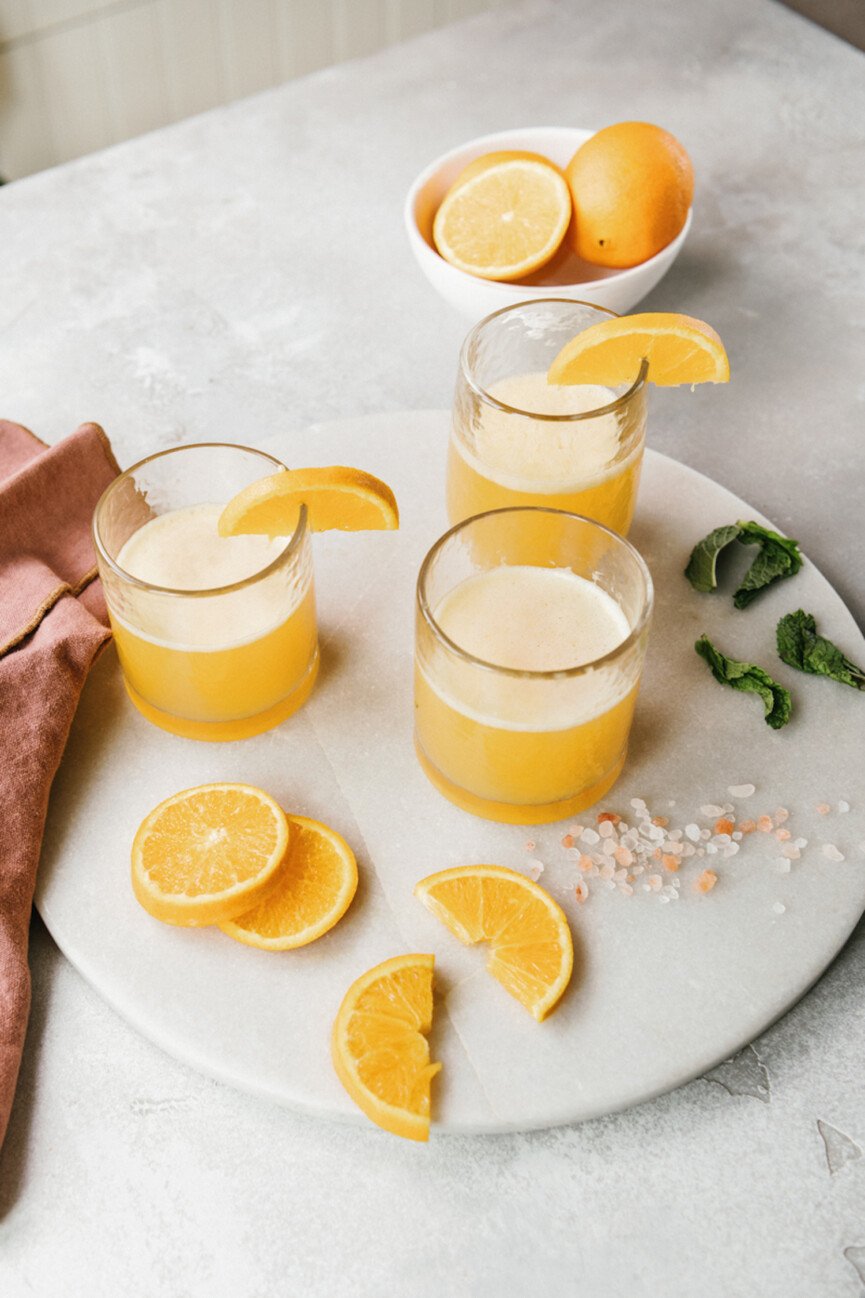Nigella smiles to the camera in a pristine kitchen. She wears a pink, twinset-style button-up cardigan. She strokes and pats gleaming implements with the tips of her fingers. She walks downstairs in a satin dressing gown and spoons dessert into her mouth in a dimly lit kitchen. When I am young, I think that Nigella on TV binds the act of cooking to a nostalgic image of the “Woman in the Kitchen.”
Get the hell out of the kitchen!
(“Get the hell out of the kitchen” is what Harriet Lerner, the prominent American clinical psychologist, feminist psychoanalytic theorist and writer said she thought women needed to do to become liberated from men—before she realized that structural oppression was the real problem when she encountered it.)
In the early 2000s when I am at school there is Ally McBeal and Sex and the City and Buffy the Vampire Slayer on the TV. The message in popular culture is that domestic tasks are antithetical to women’s liberation. It is a time of “aspiration” and New Labour Blairite politics. I attend a large local comprehensive school in a rural area and grow up in a white middle-class family. Cookery class at school is called “Food Technology” and we do more paperwork than cooking. In the prevailing discourse of success and failure, failure to leave the kitchen is framed as failure for women.
Make everything professional!
Our school gets some shiny new buildings funded by government schemes. Up, up, and away! The message is: go to university, get a “high-powered” office job in a city and be a success. It is a weird political moment where everyone is supposed to “strive” and become a lawyer or an entrepreneur and then somehow poverty will no longer exist.
The literature we study at my high school is full of white bourgeois women in domestic nightmares, their lives shaped by theories about their mental fragility or “natural” suitability to forms of labour that exclude them from intellectual life. So, when I see the cover of Nigella’s book How to Be a Domestic Goddess in 2000, just as I am encountering feminist literature for the first time at school, the title resonates with words we are learning like “pedestal” and “repression,” “binary” and “traditional roles.” I am wary of an invitation to relish domesticity.
Nigella prioritizes her own pleasure; this shocks me. She tells her audience that she is cooking for her own reasons.
Nigella’s use of possessive pronouns unsettles me, too. My chocolate cake, my quick pasta, my upmarket mushy peas. They are all declared delicious. To my young eyes these bold declarations about one’s own cookery are uncomfortable. The possessive pronouns come across as boastful, greedy, even immodest. But eventually it dawns on me that I flinch from Nigella’s on-screen display of both her own joy in her creations, and her culinary knowledge, because of internalized misogyny (when I learn what this means). And later on, I find a more radical potential in Nigella’s language and food.
My a claim to authorship, an insistence on naming
A public refusal to allow her labour in the kitchen to be exploited and plundered like some kind of natural resource, for free, and unacknowledged. She claims her own labour. Nigella often credits her sources or inspirations, but she is not afraid to name and describe her own authorial intervention into the development of a recipe that she shares with her audience. The unnamed quickly becomes forgotten and unarchived.
My finger dipped in whipped cream
Nigella prioritizes her own pleasure; this shocks me. She tells her audience that she is cooking for her own reasons. It takes me a long time to understand that a significant aspect of my fear of Nigella has to do with her overt claim to pleasure both in her writing and on TV. She will not trivialize pleasure or pretend it’s not foremost in her mind. She is telling me and you that we are worthy of pleasure and should prioritize it, too. She wants us to cook so that we can find the way to our own hearts through our stomachs. Nigella encourages readers and viewers to refuse the abjection of their bodies. Pleasure is the baseline.
These are hard messages to hear if you have been taught to unhear them.
When I watch Nigella on TV now, I see her differently than I did at high school. A journal entry from 1st December 2020 documents my attempt to describe all that is going on as Nigella serves herself a dish from her book Cook, Eat, Repeat:
Watching Nigella last night as she serves herself lemon and elderflower pudding, it occurs to me that she gives the viewer permission to have a body. After describing the pudding she has taken out of the oven—”crisp and golden,” “springy,” “squidgy”—and drizzling it lavishly with elderflower cordial and lemon juice, she says, “I’m going to give myself a bit of the corner,” as she looks down at it. Then there’s a pause as she looks back at the viewer, fully facing the camera and says, “a bit of everything actually.” Then she scoops three large wobbling spoons of pudding into her bowl. Not only one more spoon than the corner, but two. The repetition of serving herself more, not once, but twice, makes it a helping that is three times the size of the corner she begins with. The three servings give the performance the quality of ritual, of a spell. Each spoon of pudding strengthens the spell. It is as if Nigella banishes the cursed apparition of a disapproving look. With each spoon she rids herself of a layer of inhibition and comes closer to expressing her true appetite, her true power. Then, as if to seal the effect of her spell, Nigella pours enough double cream over the pudding to half-fill the bowl, takes it away and eats it, alone. I am reminded of Susan Sontag’s “BE BOLD BE BOLD BE BOLD!”, said not once, but three times in an address to young women graduates. Three times to make it stick. The bad thing is not going to happen if you give yourself three helpings of pudding, if you let yourself exist.
Nigella encourages contemporary audiences to desire, to cook, to eat; to demand more than mere subsistence.
The choice is not between burning down the kitchen or revisiting it in a nostalgic dream-state; that is a false binary. It is bad faith to burn your grandmother’s archive because she wasn’t as free as you.
______________________________

Excerpted from Small Fires: An Epic in the Kitchen by Rebecca May Johnson (Pushkin Press, 2023).


























































